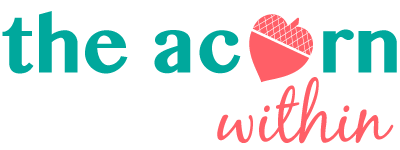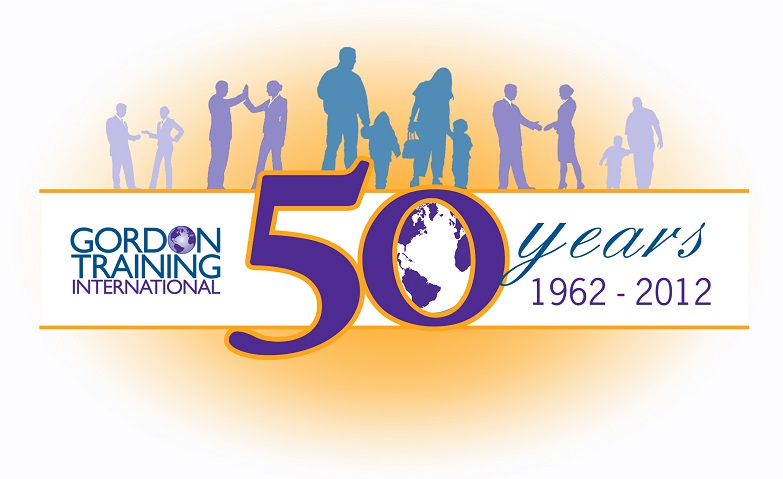Self-Acceptance & Communication Skills For Balance
I've been invited to a blog-a-thon on the theme of balance. (Thanks Healthy Living in HK!) Got me thinking about how it comes in so many forms, important in different ways depending on who you are.
For instance, I strive for work-life balance and a well-balanced diet and exercise regimen. In these areas, however, I have pretty high tolerance when things go awry. I can indulge guilt-free in a heavy meal, or even a week of rich food (as we recently enjoyed in wondrous India). My terror during first semester of law school prompted me to study 17 hours a day; knowing it was only temporary, I soldiered on.
It's imbalance of another type -- emotional and relational -- that I have always found harder to endure. An argument with a friend or a touchy issue with my child would demand a hefty portion of my attention.
For so long, it used to be like this:
“Being out of balance emotionally usually involves either not allowing yourself to experience your feelings as they evolve by avoiding or suppressing them, or being so attached to and identified with them that your feelings are all-consuming. ”
I struggled to calm down when upset. (I was never the kind of person who could just turn on a sitcom and turn off my feelings.) Out of control, I picked many fights that made things worse and then I wallowed in misery.
I was especially critical of myself for escalating matters with my children. I felt I was abusing my powerful position as a mother but didn't know what else to do. Like one parent wrote: "I’m glad I took this course because it’s an investment in the rest of my life. I realize that I will lose my power over time. And I never felt comfortable using power anyway."
Now -- hallelujah! -- I'm more often in peaceful connection with myself:
“Emotional balance occurs when we allow ourselves to feel whatever comes up, without stifling or being overwhelmed by it, and learn to accept our feelings without judgment.”
My self work has enabled me to maintain balanced relationships with my three children and to model for them life skills that dramatically reduce time spent veering off-road emotionally.
To what do I owe my transformation?
i started learning self-acceptance
In Parent Effectiveness Training: The Proven Program for Raising Responsible Children -- a book that has been translated into 34 languages for good reason -- Dr. Thomas Gordon offers us deep acceptance. He titled his first chapter Parents Are Blamed, But Not Trained and his second Parents are Persons, Not Gods.
Over and over again, he acknowledges our humanity:
- It's natural and normal to be inconsistent depending on which child we are dealing with; things going on within ourselves that particular day; and where the situation is taking place.
- Sometimes we don’t feel like listening to our kids and that's ALRIGHT. We have to be honest and congruent (how we feel on the inside is what we show on the outside).
- We sometimes lack confidence that we can ever change because most of us were never modeled therapeutic helping skills or healthy ways to confront.
Gosh, I felt calmer and fortified reading his urging to be kind to ourselves and to investigate our feelings and needs. Like this mom who emailed me after the first session: "I've read the first 2 chapters so far and I am soooo grateful for it all. What a weight lifted! I haven't even implemented any behavior changes in our family and I have found such a huge benefit. I can't wait for what the rest of the course has to offer!"
And because I felt so understood, it was easier to work in those places where I believed I DID need to change:
“It is one of those simple but beautiful paradoxes of life: When a person feels that he is truly accepted by another, as he is, then he is freed to move from there and to begin to think about how he wants to change, how he wants to grow, how he can become different, how he might become more of what he is capable of being.”
i gained the skill of Active Listening
If we find it easy to spin out of control, imagine how hard it is for our 1, 4, 9 or 14 year old to deal with big emotions. The way for our children to cool down and “listen to reason, will you!” is for someone first to listen to THEM.
For several years now, I've been Active Listening my kids, stepping into their reality and reflecting it back to them so they can feel felt and move from there. Whereas before I used to shut them down (I was a veritable master at Roadblocking), now I help them to experience the feelings and let them pass.
My children derive important messages from this empathic listening:
- I can tell Mom about my bad day at school. She helps me work out what’s been bothering me. Mom doesn't need me to be happy all the time and she doesn't run to complain to the teacher. I'll feel better and maybe even know what I want to do to solve my problem.
- Mommy accepts me even though I ruined my brother’s drawing. She doesn’t like it and she knows Jake is really sad but she wants to help me through my anger. She trusts that I didn’t really want to rip up the paper, I was just not my best self at that moment. She is there for me when I get mad so I can learn other ways.
Active Listening allows us all to maintain an even keel and spend more time in warm relationship.
i used another approach to conflict
I used never to like conflict. As a Family Court trial lawyer, I would get stomach pains dealing with opposing counsel. As a mother, I often had a knot in my gut as well, bracing myself for the screaming and "Nooooos!!!" of my strong-willed toddler.
P.E.T. taught me to resolve conflict so that I feel neither like the victim of my children nor like a malevolent force in their lives.
First of all, Active Listening already lays the groundwork for successful confrontation: the more I listen to my children, the more willing they are to hear me out when I find something they’re doing unacceptable.
Beyond that, though, I also learned specific ways to to be assertive -- bye-bye passive aggressiveness!
Here are some ways I've helped myself:
- I use Confrontive I-Messages when my children do not come to dinner because they started another computer game.
- I Consult and share my values (and they actually listen and deeply consider them!) on many issues close to the heart: a second language, family time, music lessons, hard work and the value of money.
- I led a family Method III Problem-Solve to resolve the issue of Sunday afternoon clean-up:
Everyone had a chance to speak their mind and then we listed the needs at the bottom.
Next steps: we brainstormed, evaluated and chose our solutions. After trying them out the following Sunday, we checked back in with each other.
Don't get me wrong: our family still has down moments and conflict is ever-present. What's different now is that we choose to see them -- and are equipped to treat them -- as opportunities to grow closer.
It's utterly gratifying to see my children also enjoying more emotional and relational balance. They are pretty in-tune with themselves and those around them; they are increasingly comfortable naming feelings and stating needs, being vulnerable and open.
They also understand how to consider the needs of all as they resolve conflict collaboratively. When I did my first one on one Problem-Solve with 16 year old Harrison, he asked if he could have copies of the worksheet. "These could come in handy," he said matter- of-factly.
On balance, life is now pretty darn good.
I am living a dream and teach P.E.T. now! I feel so energized after leaving a class with my current group of ten parents (just finished Session 3 on Active Listening)!
Next course starts April 23 -- Come join a community of parents who have the intention to learn a new way of parenting. Not only will you have the full skills-building course, but I also offer optional, monthly, 3 hour refresher meetings where "graduates" set the agenda, practice scenarios with support and gain clarity on their burning issues. Parenting is hard; there's no reason to go it alone.
Credit: Family on beach (http://www.mentalhelp.net/poc/view_doc.php?type=doc&id=53426&cn=51)






